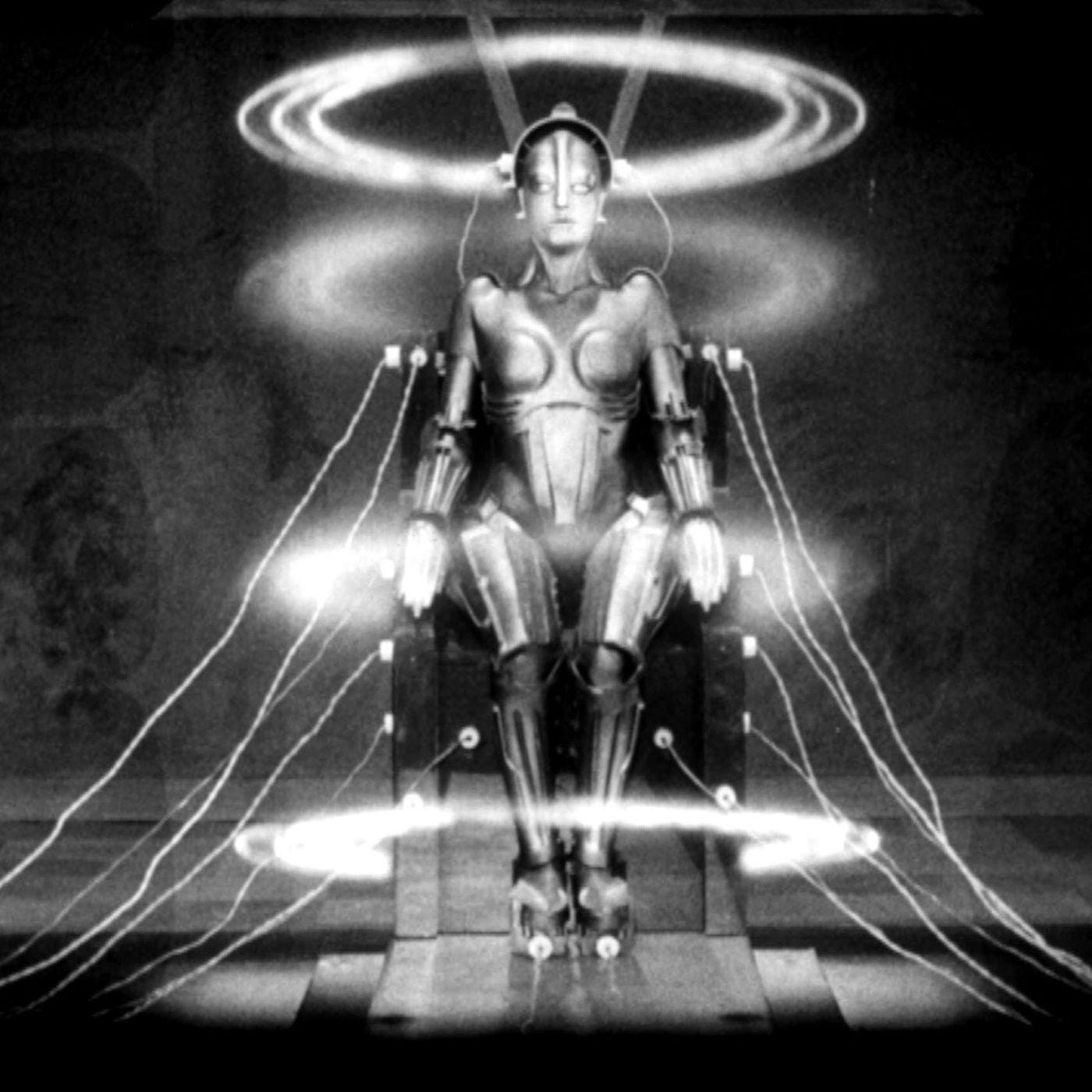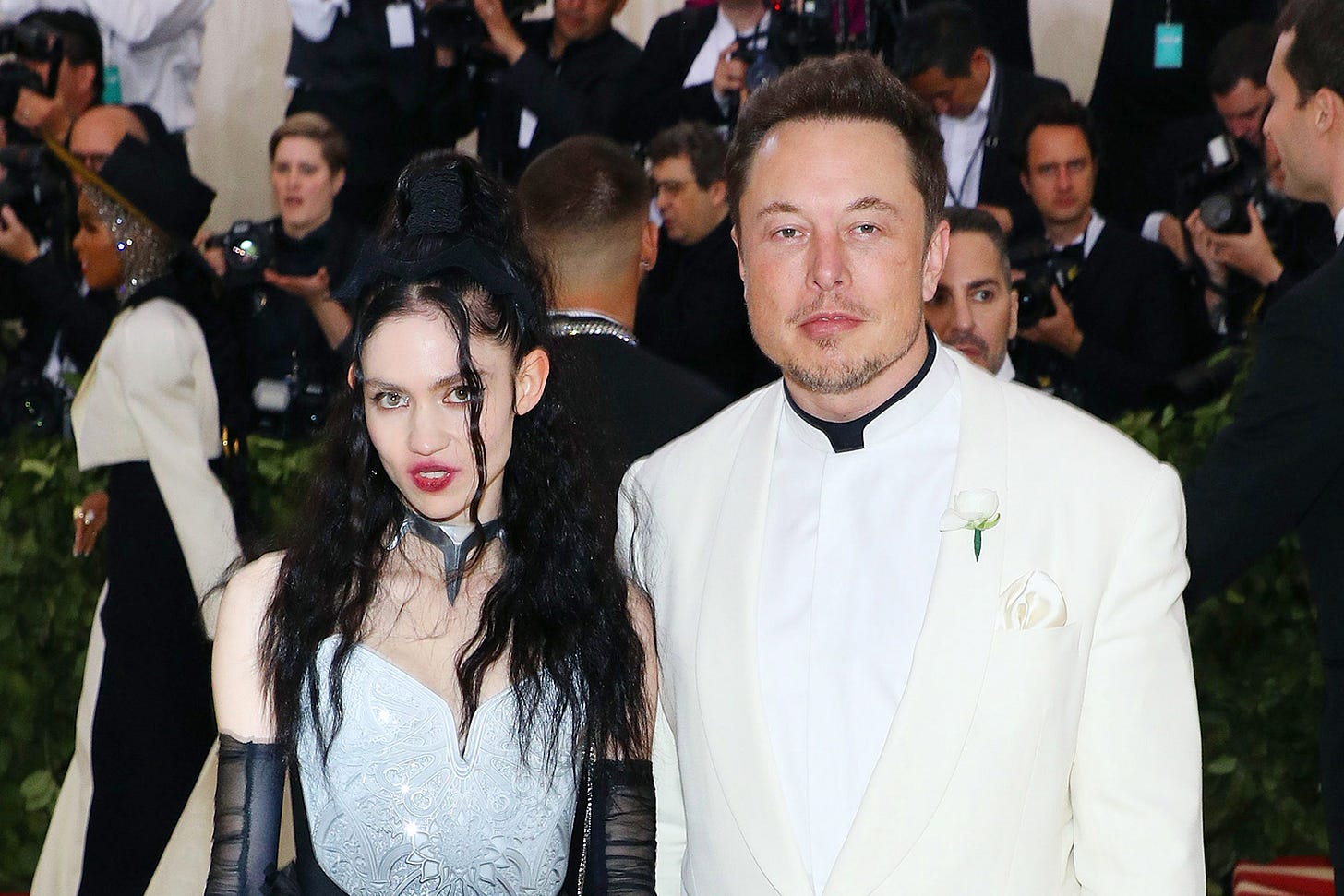Elon Musk Isn't Just Another Eccentric Billionaire. He's a Danger to the Planet.
Musk and his Merry Band of Crypto-Nihilists Need a Trip Behind the Woodshed
As a card-carrying Luddite and self-admitted technophobe, I am perhaps the last person who should be holding forth on a genius like Elon Musk.
But it is not my sex, my age, or my general disposition that makes me question whether Musk deserves to be trusted with saving the world from itself. Or us. Or quite possibly himself. I have legitimate questions about his fitness to helm businesses that have the power to change the course of human history.
His supporters (81 million of them on Twitter alone, if we are to believe those numbers) insist that how Musk conducts his private life is irrelevant and has no bearing on the contributions he is making to humanity. That’s all well and good. But so far, those contributions have benefited only himself, making Musk (with an estimated net worth of around $273 billion as of April 2022) the richest man on earth.
What must that feel like to a man who was already born into enormous wealth? Musk claims that making money is the least of his concerns, and I’m inclined to believe him. Musk isn’t motivated by money. He’s never known what life was like without it. But Musk is driven by ego in a way that’s eerily reminiscent of another thin-skinned, hair-obsessed Twitter addict: former president and perpetually racist game show host Donald J. Trump.
So, in the interest of fairness, let’s take a closer look at what I’m asserting here, which is at best, Musk’s technological innovations are a wild miscalculation. That they designed to serve the interests of other white men, only with terrifying future consequences.
I’ll let you decide.
There are five primary projects that Musk is spearheading: underground high-speed tunnels in L.A., the colonization of Mars, high-speed magnetic trains, brain chips meant to turn the human brain into a supercomputer, and Starlink, a web of satellites around the earth engineered to provide Internet access to the other half of the world’s population that doesn’t have it.
Of these five projects, only the last one, Starlink, theoretically qualifies as “serving the general good.” I’m just as fond of Google maps as the next guy, but the United States already provides the world with free access to its network of global positioning satellites. So what exactly is Musk doing here that hasn’t already been done, besides expanding a preexisting program?
His proposal means launching 42,000 more satellites into orbit. Imagine if Russia decided to do that. Or China. Already, astronomers are raising serious concerns that the night sky in any region of the Earth will be completely eclipsed. Musk’s insistence that there will be “measures taken,” to ensure visibility, such as using black antennas and other non-reflexive surfaces, doesn’t negate the fact that no telescope can see through a solid object floating through space. Also, the “global good” aspect of Starlink is greatly diminished by the fact that it will not only be a for-profit subscription service, it will be a for-profit subscription service under the control of a private corporation whose CEO has been accused by a close personal friend of “complete pathological sociopathy. They [meaning Musk, Facebook’s Mark Zuckerberg, and presumably Twitter’s former CEO Jack Dorsey] don’t at their core give a flying f*** about you or me as individuals.”
At first glance, Musk’s Hyperloop project of high-speed magnetic trains appears to be the stuff of science fiction. As of this writing, they are. Magnetic trains are only capable of traveling 400 kilometers per hour, not the 1000 kilometers per hour that Musk needs in order for Hyperloop to work. His concept is this: dig vast tunnels underneath a city and then build suspended tubes through which high-speed magnetic trains will travel, achieving supersonic speeds after yet-to-be-invented vacuum pumps remove most of the air, eliminating air resistance.
As an idea, Hyperloop is sexy, a cross between George Jetson’s Orbit City and Fritz Lang’s Metropolis. But as Lang so presciently showed us, Metropolis was a futuristic utopia catering to a privileged class, a class that remained willfully oblivious to the misery and suffering of others.
If Musk succeeds in bending the laws of physics and propelling a magnetic train at 1000 kilometers an hour, that’s exactly what Hyperloop will become: a time-saving vehicle for the upper classes, a stylish way to get from L.A. to San Francisco in less time than it takes to watch a full episode of American Idol.
Simple macroeconomics show that the enormous cost of building Hyperloop will make it necessary to charge a hefty gate price. If the true “value” of projects like Hyperloop is to rid America’s major cities of gridlock, how many commuters will actually be taken off the streets? How many people can afford the privilege of being sucked through an underground tunnel system in a vacuum tube? Who really benefits here—a handful of Silicon tech bros with sizable transportation allowances, an entire city full of cranky commuters … or Musk?
Musk’s SpaceX program has enjoyed the most publicity, likely because its avowed goal is the colonization of Mars. It works like this: a rocket called Starship, which is, of course, the biggest rocket this world has ever seen, launches into orbit. Fuel tanks will keep refilling the ship until it gets to Mars. Once Starship reaches Mars, despite there being no facilities on that planet to extract or refine fuel, the rocket will use resources found on Mars to top up so the ship can return to earth.
Clearly, the challenges are many. Musk himself now reluctantly admits that the first humans arriving on Mars will be making a one-way trip. They’ll be stuck on that rock for the rest of their natural lives, one small sacrifice for them, one giant step for … well, if not mankind, then at least a tiny sliver of it. Musk’s glorious mission to colonize Mars is his answer to saving humanity. He genuinely believes that we could see 1 million people living on Mars by 2050, and that starting over someplace else will give us a chance to do things better.
1 million people out of 7 billion. Huh. What are the chances that Musk’s Chosen Ones will be white, rich, and male?
Also, it is this writer’s considered opinion that we are the problem, not our planet. We’ll be taking our alarming tendency toward violence, our deep-seated insecurities, and our Machiavellian cunning with us wherever we go. Musk’s naivete reminds me of Mark Zuckerberg’s mission statement to “bring the world closer together.” Ask Myanmar how well that worked out for them. Or the Capitol Hill police officers who got their heads bashed in by an angry mob. Ask the family members who no longer talk to each other due to Facebook’s refusal to restrict fake news how close they feel.
Relocating to a planet with air we cannot breathe forces us to rely on corporate entities like Musk’s, of course. Oh, and when abuses end in tragedy, which they will, to what legislative body will we appeal? Earth is 261.07 million kilometers away.
Another Musk brainchild is building underground high-speed tunnels in L.A. as a primary means of relieving traffic congestion. Like his vacuum tubes, this project will require extensive and expensive digging, which may very well trigger the massive earthquake the west coast has long feared. High-speed platforms will transport cars at speeds of up to 200 kilometers an hour. But how many commuters will be able to afford it? So, once again, a great concept in theory; in practice, one more vanity project designed to fluff the ego of Elon Reeve Musk, the J. Paul Getty of 21st century tech.
By far the scariest and most unethical project Musk is spearheading is Neuralink, implanting chips inside the human brain that will generate 24-hour, hands-free access to the Internet. Thanks to electrodes thinner than a human hair, people will be able to listen to music directly inside their heads (I wonder if Spotify will want a share of that market?), enjoy virtual reality scenarios, or store their memories on a digital medium that Musk’s company will control. Hey, kids, who wants to volunteer their brain for early clinical trials?
I am powerfully reminded of Michael Creighton’s book, Jurassic Park, when chaos mathematician Dr. Ian Malcolm says, “Just because you can, doesn’t mean you should.” It was such a powerful message, even director Steven Spielberg didn’t dare take it out of the script. I urge you to watch it here:
Perhaps you find my lack of faith disturbing. After all, I’m not a scientist, a genius, or a visionary. Doubting Thomases like me are always the the ones sticking their grubby fingers inside a wound.
If the only way to decide whether Musk is a savior or a madman is to ignore popular opinions (or my own) and take a hard look at his actions, here are a few standouts.
In 2018, fraud charges were levied against Elon Musk by the SEC for having tweeted, “Am considering taking Tesla private at $420. Funding secured.” Such is the power and influence of this one man, that his tweet roiled markets around the world. As it turned out, the number 420 was a weed reference, and his announcement that Tesla was going private nothing more than a joke. Why aren’t you laughing?
Musk often “jokes.” On tech-bro Joe Rogan’s podcast, Musk smoked a joint and drank whiskey. A harmless prank, one might argue, except that Musk is not only the richest man in the world with all the responsibility that implies, he is also answerable to his shareholders, none of whom find his antics amusing.
In 2019, Musk’s altruism soared to new heights when a children’s soccer team became trapped in a cave in Thailand. Right away, he built a non-viable and unasked for miniature submarine to rescue them, but a British diver named Vern Unsworth had already extricated most of the kids by the time it arrived. Unsworth accused Musk of turning the mission into a PR stunt, to which Musk responded by calling Unsworth a “pedo guy” on Twitter, a decision that cost him millions in SEC fines.
Armed with a cadre of the best lawyers the richest man in the world can afford to buy, Musk managed to shake off defamation charges in court, but was forced to apologize to Unsworth anyway, especially when it was discovered that Musk had leaked information given to him by James Howard Higgins, a man claiming to be a private investigator. Higgins told Musk that Unsworth moved to Thailand to marry a twelve-year-old child-bride, information which Musk handfed to a reporter at Buzzfeed. Only later was it discovered that Higgins was a convicted felon with multiple counts of fraud. Musk made things worse by insisting the term “pedo guy” was a common insult in his native South Africa, and referred to a man’s demeanor, not his sexual predilections.
Due to the pressure of appointing himself the world’s savior, or because he was high on alcohol, marijuana, LSD or Ambien, all of which he is widely known to use, Musk got into an argument with a former girlfriend in front of witnesses. Belligerently, he demanded to know why she had hair on her face, a reference to the peach fuzz all women have. “Because I’m a mammal,” the woman retorted, which sent Musk into a rage.
In 2019, at the unveiling of his company’s cybertruck (a writer at Gizmodo described the truck as “a DeLorean [that] had sex with math,”) Musk tried to demonstrate the vehicle’s bulletproof windows by throwing a metal ball at them. The windows shattered, which inspired a second writer at Gizmodo to point out that the vehicle resembled a “roving fortress to fend off plebes looking for a handout” in a climate dystopia.

In recent days, Musk sent a document to the SEC stating that he could, if he chose, buy more shares of Twitter and increase his ownership of the company. Like former president Trump, Musk is notoriously thin-skinned when it comes to accepting criticism or even questions. Having a powerful mouthpiece like Twitter under his authority sets a dangerous precedent for all social media platforms.
Shortly after his document to the SEC went public, Musk proclaimed on Twitter that he was in “goblin mode,” and in a moment of puerile hilarity suggested that Twitter remove the “w” from its name. In another tweet, he proposed that Twitter open up its San Francisco headquarters to homeless people since “nobody shows up to work anyway.” The fact that he later deleted the posts surely doesn’t inspire confidence in shareholders or the general public.
"The Mediator Between the Head and the Hands Must Be the Heart,” Metropolis tells us in the final inter-title. Musk and all the rest of the tech bros in Silicon Valley should have that stenciled to their foreheads. You won’t find a lot of heart there, just a weird kind of fratty idealism pretzeled in a way that serves the interests of the few but not the many.
These are not the men who will lead us into anything but our own collective doom.
I want to hear your thoughts. Don’t be shy—chime in!
Copyright © 2022 Stacey Eskelin





Could that picture of Musk with Grimes look any more like a Bond villian? Could his behavior be any more like a Bond villian?
I agree, well said.